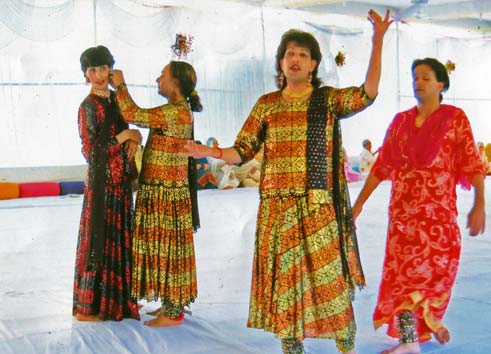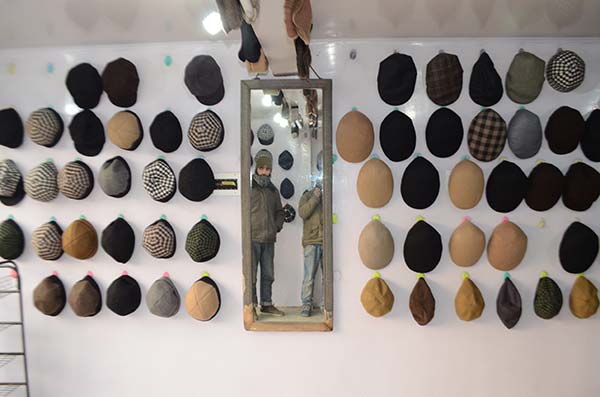Omar Abdullah threw his weight behind the LGBT struggle. But a recent research on the issue paints a grim picture of this population in J&K, reports Irfan Mehraj
Transgenders in Srinagar city are a mixed lot of unfortunate people. Some of them have escaped harassment from countryside to live a lonely life in the capital city. Most of them have not had proper schooling and most of them live in economic deprivation. They stand reduced to the butt of indecent jokes and undergo shocking psychological trauma.
The study has found a large number of the ‘third sex’ face physical and sexual harassment from friends, family and society in general which forces many of them to leave formal education altogether and leave their homes in search of jobs.
Ajaz Ahmad Bund’s recent research ‘Other Sex: A Study on Problems of Transgender women of District Srinagar’ offers a grim picture using plain statistics. It was aimed at “to accentuate the problems of transgender women and to formulate the set of recommendations to address these problems.”
“My prime motivation was in recognizing the rights of third-sex in Srinagar because this is a section of people who have no identification in terms of gender; we identify gender as either men or women totally excluding the third-sex”, Bund said.
Out of hundred transgenders interviewed for the research, Bund found thirty-six have migrated from rural areas. Out of these thirty-six – sixteen migrated due to harassment by friends and relatives, nine were disowned by their families, nine migrated in search of jobs and two migrated in pursuit of education.
Education among them is least and rare. Out of the hundred respondents that the research covered, thirty have never attended school. Among the remaining seventy who have been to school only fifty-five have passed primary level with just ten percent finishing high school. Four percent reached up to 12th standard. One percent have completed vocational training course and none have gone on to complete tertiary level of education.
The study affirms that transgenders face unceasing harassment in school. Forty-five percent faced different forms of harassment, among which thirteen percent were sexually harassed, fifteen are physically harassed and sixty-percent were verbally abused. The abuse meted out to those in school was two-fold. It came from both students and teachers. Sixty percent were harassed by the students and fifteen percent were harassed by the teachers. The study adds that thirteen percent were abused by the non-teaching staff of the school.
With migration rate high among members of third-sex only seventeen percent have shown the desire to return to their homes. The remaining ones either live alone (38%) or live with other transgenders (30%) and some of them live with their families (15%) or with their partners (2%).
Excluded from social life the transgender face deprivation at the economic level also with not a single transgender in possession of a government or private job. Forty five percent of the interviewed transgender women are unemployed. Eighteen percent are into match making with twelve percent who dance at marriage parties. Twenty percent compound as domestic helpers while as two percent are sex workers. But the workplaces are by no means a place of comfort for these hapless women as they face equal harassment there as well.
The respondents who are in the sex work say that “they are often mistreated by the clients and police has a hostile attitude towards them.” Those working as domestic workers “claim exploitation in terms of low wages and more work load.” Working as manual laborers the transgenders claim that “they face harassment by fellow workers or the masters.” Fifty-percent of the interviewed transgenders have income below one thousand rupees.
With property rights denied to them only fifteen percent have their own property. The discrimination stretches to political life with only eight percent carrying a voter card and just fifteen percent in possession of ration card. “Hundred percent of interviewed transgenders feel politically alienated. They feel that they have no say in the political system of Kashmir. They find no place in the mainstream or the separatist politics,” the study asserts.
The study is scientific in nature and the methodology involves studying the socio – economic profile of respondents by conducting interviews. However identifying people to talk involved a serious effort, says Bund, “Unlike in India transgenders in Kashmir don’t live in communities, they live invisible lives amongst us and finding them was a big challenge in itself.”
The impact of harassment has lead to several restrictions to civic life among transgender women. The outcome is seen through no attendance in social participation, barred from social institutions like schools, marriages, festivals, and places of birth and worship.
The study has suggested formation of Transgender Welfare Board in J&K with an appeal to the “government for reservations in educational institutions and government jobs for such people.” Among other recommendations Ajaz feels that sensitizing people is foremost. “I think people’s attitudes towards transgenders must change because if we are looking at gender empowerment it cannot come without empowerment of the third-sex,” he added.
Can Omar address the LGBT issues back home. He can prove different because Article 370 permits him to be so.
















